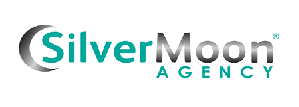In the dynamic world of digital marketing, pay-per-click (PPC) advertising stands out as a powerful tool for driving targeted traffic and generating leads. However, to truly capitalize on the potential of PPC, effective campaign management is crucial. This blog will explore the essentials of pay-per-click campaign management, providing strategies and insights to help you optimize your PPC campaigns and achieve outstanding results.
What is Pay-Per-Click (PPC) Advertising?
Pay-per-click (PPC) advertising is an online marketing model where advertisers pay a fee each time their ad is clicked. Unlike traditional advertising, where you pay for ad space regardless of performance, PPC ensures you only pay for actual engagement. Common platforms for PPC include Google Ads, Bing Ads, and social media networks like Facebook and LinkedIn.
PPC allows businesses to target specific audiences with relevant ads, making it a highly effective method for driving traffic and conversions. However, managing a PPC campaign effectively requires a strategic approach and ongoing optimization.
Key Components of Pay-Per-Click Campaign Management
Keyword Research:
The foundation of a successful PPC campaign is effective keyword research. Keywords are the terms or phrases potential customers use when searching for products or services like yours. Proper keyword selection ensures your ads appear for relevant search queries, increasing the likelihood of attracting qualified leads.
Tools for Keyword Research: Utilize tools like Google Keyword Planner, SEMrush, and Ahrefs to identify high-performing keywords. These tools provide insights into search volume, competition, and cost-per-click (CPC), helping you choose the most effective keywords for your campaign.
Long-Tail Keywords: Consider incorporating long-tail keywords, which are longer, more specific phrases. These often have lower competition and higher conversion rates, as they target users with more specific search intents.
Ad Copy and Creative:
Crafting compelling ad copy and creative is crucial for capturing the attention of your target audience and encouraging clicks. Your ad copy should be clear, concise, and aligned with the keywords you’re targeting.
Headline: Create a strong, attention-grabbing headline that includes your primary keyword and highlights the main benefit of your product or service.
Description: Write a persuasive description that expands on your headline, includes a call-to-action (CTA), and provides additional details about your offer.
Visuals: If your PPC platform supports visual ads, use high-quality images or videos that resonate with your audience and reinforce your message.
Landing Page Optimization:
The landing page is where users are directed after clicking your ad. A well-designed landing page is essential for converting clicks into leads or sales.
Relevance: Ensure that the content on your landing page is relevant to the ad that drove the click. Consistency between the ad and landing page improves user experience and increases conversion rates.
Design and Usability: Design your landing page to be visually appealing and easy to navigate. Optimize page load speed, ensure mobile-friendliness, and include clear CTAs to guide users toward taking the desired action.
Bid Management:
In PPC advertising, bids determine the amount you’re willing to pay for each click on your ad. Effective bid management helps you stay within your budget while maximizing ad performance.
Manual vs. Automated Bidding: You can choose between manual bidding, where you set individual bids for each keyword, or automated bidding strategies offered by PPC platforms. Automated bidding adjusts bids in real-time to achieve specific goals, such as maximizing clicks or conversions.
Budget Allocation: Allocate your budget based on the performance of different keywords, ads, and campaigns. Monitor spending and adjust budgets to focus on high-performing areas and avoid overspending on underperforming ones.
Campaign Monitoring and Analytics:
Regular monitoring and analysis are crucial for optimizing your PPC campaigns. Track key metrics to assess performance and make data-driven decisions.
Key Metrics: Monitor metrics such as click-through rate (CTR), conversion rate, cost-per-click (CPC), and return on ad spend (ROAS). These metrics provide insights into how well your ads are performing and where improvements can be made.
A/B Testing: Conduct A/B tests to compare different ad copies, headlines, and landing pages. Testing allows you to identify the most effective elements and refine your campaigns for better results.
Optimization and Refinement:
Continuous optimization is key to maintaining and improving the performance of your PPC campaigns. Regularly review your campaign data and make adjustments based on your findings.
Keyword Refinement: Regularly review your keyword performance and adjust bids or add new keywords based on their effectiveness. Remove underperforming keywords that are not driving valuable traffic.
Ad Copy Adjustments: Test different variations of ad copy to see what resonates best with your audience. Update your ad copy based on performance data and trends.
Competitor Analysis:
Understanding your competitors’ PPC strategies can provide valuable insights and opportunities for improvement.
Competitive Research: Analyze your competitors’ ad copy, keywords, and landing pages to identify strengths and weaknesses. Tools like SEMrush and SpyFu can help you gain insights into your competitors’ PPC strategies.
Differentiation: Use the insights gained from competitor analysis to differentiate your ads and offer unique value propositions that set you apart from the competition.
Common Challenges in Pay-Per-Click Campaign Management
High Competition:
In competitive industries, bidding costs can be high, making it challenging to achieve a positive return on investment (ROI). Focus on niche keywords and optimize your ad copy and landing pages to stand out from competitors.
Ad Fatigue:
Over time, audiences may become less responsive to your ads, leading to decreased performance. Regularly refresh your ad creatives and test new variations to maintain engagement.
Budget Management:
Balancing your budget to maximize ROI while avoiding overspending can be challenging. Use automated bidding strategies and monitor performance closely to make informed budget adjustments.
Effective pay-per-click campaign management is essential for driving targeted traffic, generating leads, and achieving your marketing goals. By focusing on key components such as keyword research, ad copy, landing page optimization, and continuous monitoring, you can create successful PPC campaigns that deliver measurable results. Remember to stay informed about industry trends and continuously refine your strategies to stay ahead of the competition. With a strategic approach and ongoing optimization, you can harness the power of PPC advertising to achieve your business objectives and drive growth.

